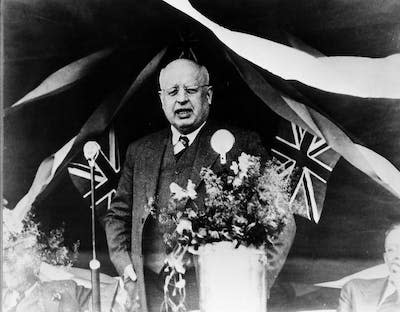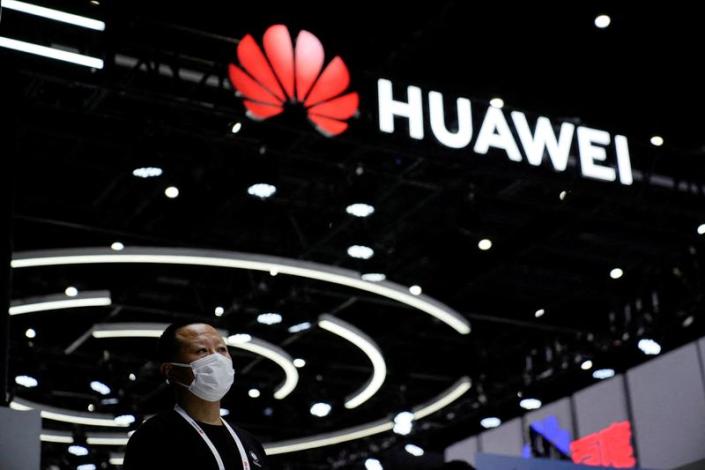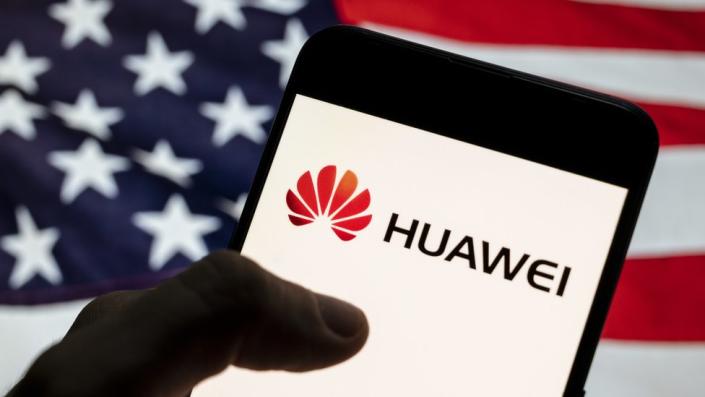Robert L. Ascah, Research Fellow, The Parkland Institute, University of Alberta
Mon, January 30, 2023

Alberta Premier Danielle Smith speaks at a news conference in Edmonton in November 2022. THE CANADIAN PRESS/Jason Franson
What is the Free Alberta Strategy, the co-creation of two lawyers and a Calgary political scientist? And with a provincial election on the horizon this spring in Alberta, what will the sovereignty strategy mean for voters?
Bill 1, the Alberta Sovereignty Within a United Canada Act, is the centrepiece of the Free Alberta Strategy. It was introduced late last year by Premier Danielle Smith in another salvo in the ongoing constitutional battle between Alberta and the federal government.
Let’s review the concept’s origin and focus on one of the least examined components of the Free Alberta Strategy — the proposed Independent Banking Act.
History
Alberta separatism in the 21st century began to rear its head when Ralph Klein was premier. The so-called firewall letter, a two-page missive to Klein, was published in the National Post in January 2001.
It was signed by future prime minister Stephen Harper, then the president of the National Citizens Coalition, a well-funded conservative advocacy group, and other signatories that included University of Calgary political scientists Ted Morton, Tom Flanagan and Rainer Knopff, Andrew Crooks of the Canadian Taxpayers Federation and Ken Boessenkool, a former policy adviser to Stockwell Day, leader of the Canadian Alliance.

Stephen Harper, then the president of the National Citizens Coalition, speaks with media in Calgary in October 2000. (CP PHOTO/Jeff McIntosh)
Many of the letter’s recommendations would reappear almost identically in 2020, in the Fair Deal Panel findings under Premier Jason Kenney. It proposed setting up a provincial police force, withdrawing from the Canada Pension Plan and effectively expanding the mandate of Alberta Revenue to collect personal income taxes.
When Harper was elected prime minister, western separatism died down. But the election of Justin Trudeau’s Liberals and Rachel Notley’s NDP in 2015 seemed to fuel dissent among some conservative elements in Alberta.
This resulted in the amalgamation of right-wing forces with the establishment of the Kenney-led United Conservative Party. Kenney easily won the 2019 election because the conservative vote wasn’t split.
Buffalo declaration
In February 2020, the Buffalo declaration was released. The 13-page letter argued that Confederation isn’t working for Alberta. It was signed by four Alberta MPs, led by Michelle Rempel Garner. It opened with a list of alleged historical injustices imposed on Alberta and its sister province, Saskatchewan.

Conservative MP Michelle Rempel Garner asks a question during Question Period in the House of Commons on Parliament Hill in 2020.
The alleged causes of the crisis included the National Energy Program of 1980 to 1985 — a “malicious” attack against Alberta’s resource sector, according to the declaration.
Policy recommendations included the recognition of Alberta as “a culturally distinct region within Confederation,” improved representation in Parliament and an acknowledgement of the “devastation” of the National Energy Program.
It also demanded changes to the equalization program and approval of the Teck Frontier mining project.
Meanwhile, Kenney was proving unable to control anti-Ottawa sentiment in Alberta, and his handling of the COVID-19 pandemic threatened party unity. He ultimately lost a leadership vote in 2022 and resigned.
A year earlier, the Free Alberta Strategy was launched by former Wildrose MLA Rob Anderson, libertarian Derek From and Barry Cooper, a political scientist at the University of Calgary.
The strategy, with the Alberta Sovereignty Act as its centrepiece, was championed by Smith in her successful leadership campaign. Kenney and many of Smith’s leadership opponents, meantime, were heavily critical of the concept.
Kenney and Travis Toews, the Alberta finance minister, expressed concerns about a flight of capital from the province.

Jason Kenney shakes hands with Travis Toews after swearing him in as finance minister in Edmonton in 2019. THE CANADIAN PRESS/Jason Franson
Largely unnoticed in the Free Alberta Strategy’s recommendations is the creation of a provincial independent banking system.
Given my experience as an executive with ATB Financial, the government’s wholly owned full-service “bank,” I understand the difficulties of creating a private Alberta-regulated financial system.
A functioning banking system is critical to Alberta’s economic well-being. Banking, however, is under exclusive federal jurisdiction, including currency and the issuing of paper money.
The Free Alberta Strategy, however, purports to allow Alberta to incorporate and regulate banks, which is clearly unconstitutional. There’s no mention that this proposal is beyond the powers of the provincial legislature.

William Aberhart, premier of Alberta, is pictured at a rally in Calgary in 1937.
Few Albertans probably remember the attempts of onetime Alberta premier William Aberhart during the Great Depression to tax and regulate banks in an effort to forestall foreclosures that were disrupting the lives of thousands of Albertans.
These efforts failed due to the courts siding with the federal government, and by the federal government’s use of the rarely used powers of reservation or disallowance.
The idea of using a provincial banking system to thwart federal agencies or federally regulated banks therefore is nothing new. Aberhart tried it, including by using provincial powers over property and civil rights, taxation and judicial procedures. These laws were ultimately overturned.
When Alberta couldn’t fight the banks, it decided to join them. Alberta Treasury Branches — now ATB Financial — is the main surviving relic of Aberhart’s commitment to help Albertans during the Depression.
Cut off from Payments Canada
The Free Alberta Strategy’s authors, however, are failing to recognize the impracticalities of Alberta going ahead with its own banking system.
All banks — or quasi-banks like credit unions, ATB Financial and trust companies — participate in the neural network of the Canadian financial system known as Payments Canada. All banking institutions transfer value for their customers by dispensing cash and offering debit and credit card services.
In the unlikely event that Smith introduced legislation to incorporate banks, Canada’s federal finance minister would quickly point out that ATB and credit unions would be cut off from access to the payments system if the bill were to proceed.

ATB Financial CEO Curtis Stange is pictured at the ATB Financial offices in Edmonton in June 2018. THE CANADIAN PRESS/Jason Franson
This would also mean that ATB or credit unions would not be able to access the lender-of-last-resort services at the Bank of Canada. The lender of last resort can provide liquidity or cash resources to troubled financial institutions to stave off a run on the bank.
Without access to the payment systems and the central bank, ATB and credit unions would fail to meet customer needs for cash, payroll services or to close real estate or securities transactions.
The Free Alberta Strategy is in fact a road map for Alberta sovereignty, touching on the most essential compartment of sovereignty — banking and currency.
Canadian bankers and finance ministers need to understand that the inner workings of banking and central banking are well known to some Alberta sovereigntists in positions of influence — and that the constitution is only an obstacle if Alberta remains part of Canada.
This article is republished from The Conversation, an independent nonprofit news site dedicated to sharing ideas from academic experts.
It was written by: Robert L. Ascah, University of Alberta.
Read more:
In Danielle Smith’s fantasy Alberta, Indigenous struggle is twisted to suit settlers
How Danielle Smith won in Alberta and what it means for Canada
Robert (Bob) L. Ascah is affiliated with Alberta NDP.



